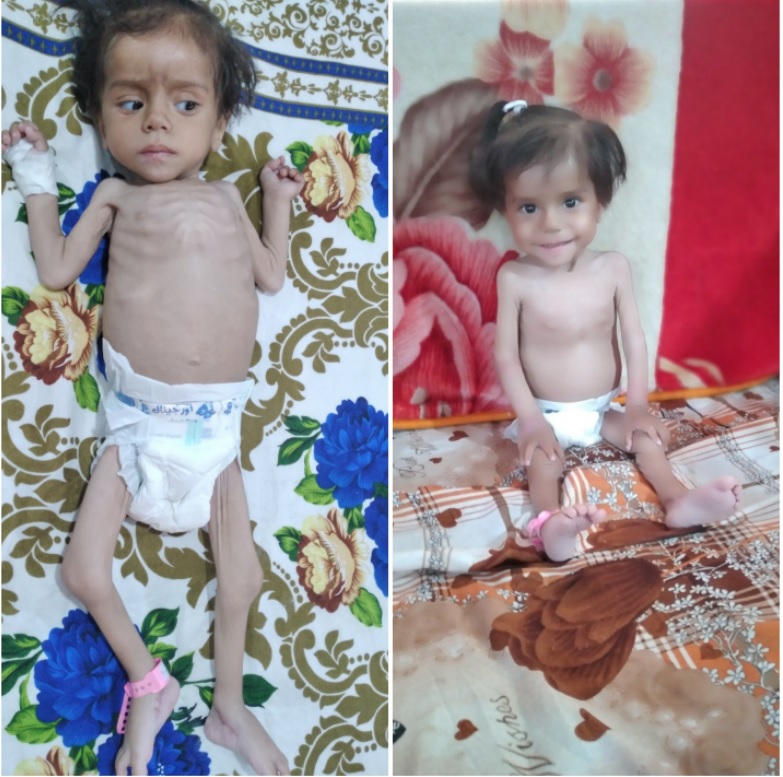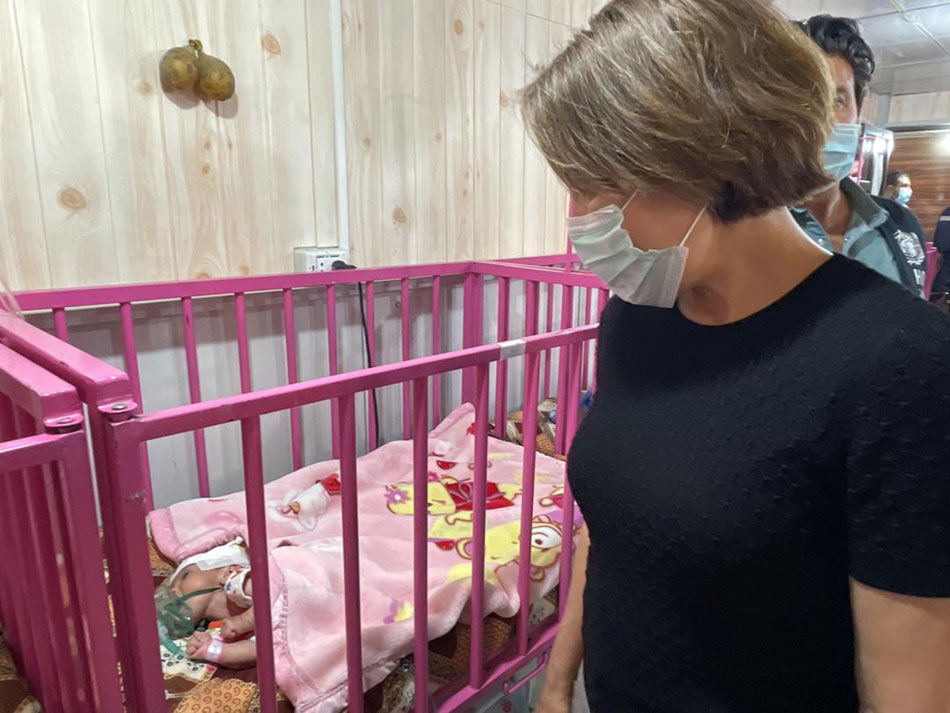
9 July 2021, Damascus – War and insecurity continue to take a toll on the Syrian people. In the decade since the conflict began, many have lost their lives or livelihoods and most of the country’s population suffers from one health condition or another, for which service provision is limited. Among those with dire health needs are children, born in a country ravaged by war and displacement.
Two-year old Sally weighed just 4 kilos when she was admitted to Al-HIkma Hospital in Al-Hasakeh governorate in northeast Syria. She was agitated, wheezing and weak. Sally was diagnosed with severe acute malnutrition and was suffering from several health-related complications, including bronchitis, confirmed through extensive laboratory tests and chest X-rays. The toddler received special nutrients, nebulization and antibiotics and was released after 10 days, once her health was stable and her weight had increased.
“Not only did Sally gain 1.5 kilograms in 10 days, but she also gained a desire to live, a desire to smile and a desire to grow in her skin,” said Sally’s mother, her eyes brimming with tears of joy.
Sally’s case is unfortunately all too common in Syria. Many devastated parents visit the WHO-supported stabilization centres clutching under-nourished emaciated children.
The situation in Syria has never been worse. Syrian families have exhausted their savings and are physically and mentally worn out, unable to provide for their children. The pandemic has added strain to an already grim situation and the economy continues to deteriorate. This has exacerbated an already overstretched health system and led many families to resort to consuming less food of worse quality. Humanitarian assistance has never been more crucial.
In 2020, WHO inspected children at 928 health centres across Syria as part of a nutrition surveillance programme. Among the 1.5 million children under the age of 5 who were screened, 27 000 were found to be suffering from acute malnutrition; 1488 were referred to stabilization centres due to health complications that made them more susceptible to illnesses and placed them at a greater risk of dying from infection and micronutrient deficiency.
WHO is sparing no effort to support under-nourished children. In 2020, WHO took the lead in supporting 25 stabilization centres in the country, 4 of which are in northeast Syria, where nutrition surveillance continues to expand. 500 of 58 000 children screened in northeast Syria were referred to stabilization centres.

“Preventing child malnutrition requires concerted efforts to ensure that mothers are well-nourished and provided with adequate health services, as well as a clean and safe environment,” says Dr Akjemal Magtymova, WHO Representative in Syria, while on a recent mission to Al Hasakeh governorate. “Combating malnutrition and optimizing early-life nutrition ensures the child’s physical and cognitive development, reduces future health care costs, and increases economic growth.”
Severe acute malnutrition is a life-threatening condition that requires urgent treatment. The developmental, economic and medical impacts of malnutrition are serious and long-lasting for individuals, their families and the country as a whole. WHO calls on Member States to address health equity so that all children have access to essential health services without facing undue financial hardship.
Media contact
Gulalek Soltanova
External Relations/Communications Officer
WHO Syria Office
Damascus, Syrian Arab Republic
+963 953 888 477


